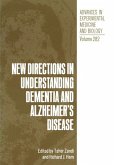113,95 €
113,95 €
inkl. MwSt.
Sofort per Download lieferbar

57 °P sammeln
113,95 €
Als Download kaufen

113,95 €
inkl. MwSt.
Sofort per Download lieferbar

57 °P sammeln
Jetzt verschenken
Alle Infos zum eBook verschenken
113,95 €
inkl. MwSt.
Sofort per Download lieferbar
Alle Infos zum eBook verschenken

57 °P sammeln
- Format: PDF
- Merkliste
- Auf die Merkliste
- Bewerten Bewerten
- Teilen
- Produkt teilen
- Produkterinnerung
- Produkterinnerung

Bitte loggen Sie sich zunächst in Ihr Kundenkonto ein oder registrieren Sie sich bei
bücher.de, um das eBook-Abo tolino select nutzen zu können.
Hier können Sie sich einloggen
Hier können Sie sich einloggen
Sie sind bereits eingeloggt. Klicken Sie auf 2. tolino select Abo, um fortzufahren.

Bitte loggen Sie sich zunächst in Ihr Kundenkonto ein oder registrieren Sie sich bei bücher.de, um das eBook-Abo tolino select nutzen zu können.
This is a practitioner's guidebook presenting steps to assessing and treating a problem that borders on health and psychology. It is an invaluable resource for psychologists, nurses, physicians, and allied health professionals and all those who deal with sufferers of chronic sleep problems.
- Geräte: PC
- ohne Kopierschutz
- eBook Hilfe
- Größe: 4.59MB
Andere Kunden interessierten sich auch für
![The Evolution of Intelligent Systems (eBook, PDF) The Evolution of Intelligent Systems (eBook, PDF)]() K. RichardsonThe Evolution of Intelligent Systems (eBook, PDF)40,95 €
K. RichardsonThe Evolution of Intelligent Systems (eBook, PDF)40,95 €![Facing the Complexities of Women's Sexual Desire (eBook, PDF) Facing the Complexities of Women's Sexual Desire (eBook, PDF)]() Vera S. MaassFacing the Complexities of Women's Sexual Desire (eBook, PDF)40,95 €
Vera S. MaassFacing the Complexities of Women's Sexual Desire (eBook, PDF)40,95 €![The Primary Care Toolkit (eBook, PDF) The Primary Care Toolkit (eBook, PDF)]() The Primary Care Toolkit (eBook, PDF)73,95 €
The Primary Care Toolkit (eBook, PDF)73,95 €![Chronic Pain and Family (eBook, PDF) Chronic Pain and Family (eBook, PDF)]() Ranjan RoyChronic Pain and Family (eBook, PDF)40,95 €
Ranjan RoyChronic Pain and Family (eBook, PDF)40,95 €![Quality (eBook, PDF) Quality (eBook, PDF)]() Ivan BarofskyQuality (eBook, PDF)113,95 €
Ivan BarofskyQuality (eBook, PDF)113,95 €![Current Themes in Psychiatry in Theory and Practice (eBook, PDF) Current Themes in Psychiatry in Theory and Practice (eBook, PDF)]() Current Themes in Psychiatry in Theory and Practice (eBook, PDF)40,95 €
Current Themes in Psychiatry in Theory and Practice (eBook, PDF)40,95 €![New Directions in Understanding Dementia and Alzheimer's Disease (eBook, PDF) New Directions in Understanding Dementia and Alzheimer's Disease (eBook, PDF)]() New Directions in Understanding Dementia and Alzheimer's Disease (eBook, PDF)40,95 €
New Directions in Understanding Dementia and Alzheimer's Disease (eBook, PDF)40,95 €-
-
-
This is a practitioner's guidebook presenting steps to assessing and treating a problem that borders on health and psychology. It is an invaluable resource for psychologists, nurses, physicians, and allied health professionals and all those who deal with sufferers of chronic sleep problems.
Dieser Download kann aus rechtlichen Gründen nur mit Rechnungsadresse in A, B, BG, CY, CZ, D, DK, EW, E, FIN, F, GR, HR, H, IRL, I, LT, L, LR, M, NL, PL, P, R, S, SLO, SK ausgeliefert werden.
Produktdetails
- Produktdetails
- Verlag: Springer New York
- Seitenzahl: 190
- Erscheinungstermin: 8. Mai 2007
- Englisch
- ISBN-13: 9780306478963
- Artikelnr.: 43999448
- Verlag: Springer New York
- Seitenzahl: 190
- Erscheinungstermin: 8. Mai 2007
- Englisch
- ISBN-13: 9780306478963
- Artikelnr.: 43999448
- Herstellerkennzeichnung Die Herstellerinformationen sind derzeit nicht verfügbar.
Dr. Charles M. Morin joined the School of Psychology at Université Laval in 1994, after postdoctoral training at the Medical College of Virginia, where he then worked as professor and director of the Sleep Disorders Center (from 1987 to 1994). Dr. Morin directs research on insomnia (subsidies of the National Institute of Mental Health and the IRSC) and co-directs work on the relation between sleep and cognitive and immunological functions (subsidy of the IRSC), and on empirically validated psychotherapies (subsidy of the FCAR). He is also a member of the Office of Direction of the Mental Health Network (Axis Sleep - subsidy of the FRSQ). He is an assistant head of the review for Behavioral Sleep Medicine and part of the editorial board of several scientific reviews. He directs the Center on Sleep Disorders and is a member of the Research Center Université Laval Robert-Giffard (CRULRG). He was a director of the doctorate program (Ph.D., clinical orientation), from 1995 to 2000. In 1995, the American Psychological Association (APA) awarded him the Distinguished Early Career Award for his exceptional contribution to health psychology.
1: The basics of sleep. Introduction. The nature and organization of sleep. Biopsychosocial determinants of sleep. Sleep needs. The consequences of sleep deprivation.
2: Clinical features of insomnia. Introduction. Clinical presentation. Definition. Concomitant laboratory findings and clinical features. Course and prognosis. Insomnia as a symptom or a syndrome. Does your patient suffer from insomnia?
3: Assessment and differential diagnosis of insomnia. Introduction. The assessment of insomnia. Differential diagnosis of insomnia. Clinical formulation of the sleep problem.
4: Sleep hygiene and relaxation therapy. Introduction. Rationale for sleep hygiene. Practical instructions for using sleep hygiene advice. Rationale for relaxation therapy. Practical instructions for using relaxation therapy. Implementation issues with relaxation therapy. Clinical vignette.
5: Sleep scheduling. Introduction. Rationale for sleep scheduling. Practical instructions for using sleep scheduling. Implementation issues.
6: Cognitive therapy. Introduction. The role of dysfunctional cognitions in insomnia. Rationale and objectives. Principles and practice of cognitive therapy. Practical recommendations for changing beliefs and attitudes about sleeplessness. Clinical vignettes. Treatment implementation issues. Supporting evidence. Other cognitive approaches.
7: Sleep medications. Introduction. Types of medications used for insomnia. Clinical benefits, risks, and limitations. Indications and contra-indications. Clinical guidelines on the appropriate use of sleep medication. Combining psychological and pharmacological approaches. Clinical guidelines for hypnotic discontinuation. Conclusions.
8: Clinical and treatment implementation issues. Introduction. Treatment implementation formats - individual, group, and brief consultations models. Treatment parameters - frequency, timing and duration of treatment. Strategies to promote compliance. Treatment of special populations.
References.
2: Clinical features of insomnia. Introduction. Clinical presentation. Definition. Concomitant laboratory findings and clinical features. Course and prognosis. Insomnia as a symptom or a syndrome. Does your patient suffer from insomnia?
3: Assessment and differential diagnosis of insomnia. Introduction. The assessment of insomnia. Differential diagnosis of insomnia. Clinical formulation of the sleep problem.
4: Sleep hygiene and relaxation therapy. Introduction. Rationale for sleep hygiene. Practical instructions for using sleep hygiene advice. Rationale for relaxation therapy. Practical instructions for using relaxation therapy. Implementation issues with relaxation therapy. Clinical vignette.
5: Sleep scheduling. Introduction. Rationale for sleep scheduling. Practical instructions for using sleep scheduling. Implementation issues.
6: Cognitive therapy. Introduction. The role of dysfunctional cognitions in insomnia. Rationale and objectives. Principles and practice of cognitive therapy. Practical recommendations for changing beliefs and attitudes about sleeplessness. Clinical vignettes. Treatment implementation issues. Supporting evidence. Other cognitive approaches.
7: Sleep medications. Introduction. Types of medications used for insomnia. Clinical benefits, risks, and limitations. Indications and contra-indications. Clinical guidelines on the appropriate use of sleep medication. Combining psychological and pharmacological approaches. Clinical guidelines for hypnotic discontinuation. Conclusions.
8: Clinical and treatment implementation issues. Introduction. Treatment implementation formats - individual, group, and brief consultations models. Treatment parameters - frequency, timing and duration of treatment. Strategies to promote compliance. Treatment of special populations.
References.
The Basics of Sleep.- Clinical Features of Insomnia.- Assessment and Differential Diagnosis of Insomnia.- Sleep Hygiene and Relaxation Therapy.- Sleep Scheduling.- Cognitive Therapy.- Sleep Medications.- Clinical and Treatment Implementation Issues.
1: The basics of sleep. Introduction. The nature and organization of sleep. Biopsychosocial determinants of sleep. Sleep needs. The consequences of sleep deprivation.
2: Clinical features of insomnia. Introduction. Clinical presentation. Definition. Concomitant laboratory findings and clinical features. Course and prognosis. Insomnia as a symptom or a syndrome. Does your patient suffer from insomnia?
3: Assessment and differential diagnosis of insomnia. Introduction. The assessment of insomnia. Differential diagnosis of insomnia. Clinical formulation of the sleep problem.
4: Sleep hygiene and relaxation therapy. Introduction. Rationale for sleep hygiene. Practical instructions for using sleep hygiene advice. Rationale for relaxation therapy. Practical instructions for using relaxation therapy. Implementation issues with relaxation therapy. Clinical vignette.
5: Sleep scheduling. Introduction. Rationale for sleep scheduling. Practical instructions for using sleep scheduling. Implementation issues.
6: Cognitive therapy. Introduction. The role of dysfunctional cognitions in insomnia. Rationale and objectives. Principles and practice of cognitive therapy. Practical recommendations for changing beliefs and attitudes about sleeplessness. Clinical vignettes. Treatment implementation issues. Supporting evidence. Other cognitive approaches.
7: Sleep medications. Introduction. Types of medications used for insomnia. Clinical benefits, risks, and limitations. Indications and contra-indications. Clinical guidelines on the appropriate use of sleep medication. Combining psychological and pharmacological approaches. Clinical guidelines for hypnotic discontinuation. Conclusions.
8: Clinical and treatment implementation issues. Introduction. Treatment implementation formats - individual, group, and brief consultations models. Treatment parameters - frequency, timing and duration of treatment. Strategies to promote compliance. Treatment of special populations.
References.
2: Clinical features of insomnia. Introduction. Clinical presentation. Definition. Concomitant laboratory findings and clinical features. Course and prognosis. Insomnia as a symptom or a syndrome. Does your patient suffer from insomnia?
3: Assessment and differential diagnosis of insomnia. Introduction. The assessment of insomnia. Differential diagnosis of insomnia. Clinical formulation of the sleep problem.
4: Sleep hygiene and relaxation therapy. Introduction. Rationale for sleep hygiene. Practical instructions for using sleep hygiene advice. Rationale for relaxation therapy. Practical instructions for using relaxation therapy. Implementation issues with relaxation therapy. Clinical vignette.
5: Sleep scheduling. Introduction. Rationale for sleep scheduling. Practical instructions for using sleep scheduling. Implementation issues.
6: Cognitive therapy. Introduction. The role of dysfunctional cognitions in insomnia. Rationale and objectives. Principles and practice of cognitive therapy. Practical recommendations for changing beliefs and attitudes about sleeplessness. Clinical vignettes. Treatment implementation issues. Supporting evidence. Other cognitive approaches.
7: Sleep medications. Introduction. Types of medications used for insomnia. Clinical benefits, risks, and limitations. Indications and contra-indications. Clinical guidelines on the appropriate use of sleep medication. Combining psychological and pharmacological approaches. Clinical guidelines for hypnotic discontinuation. Conclusions.
8: Clinical and treatment implementation issues. Introduction. Treatment implementation formats - individual, group, and brief consultations models. Treatment parameters - frequency, timing and duration of treatment. Strategies to promote compliance. Treatment of special populations.
References.
The Basics of Sleep.- Clinical Features of Insomnia.- Assessment and Differential Diagnosis of Insomnia.- Sleep Hygiene and Relaxation Therapy.- Sleep Scheduling.- Cognitive Therapy.- Sleep Medications.- Clinical and Treatment Implementation Issues.







